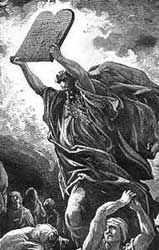A NEW COMMANDMENT

“A new commandment I give unto you, That ye love one another; as I have loved you, that ye also love one another” (John 13:34).
In these words, the Master provides a commandment which is to be an overriding principle by which his brethren live: to love each other, and conduct all matters with a spirit of mutual submission and brotherly kindness.
But in what way is this a “new” commandment? The Law of Moses also commanded love:
“Thou shalt not avenge, nor bear any grudge against the children of thy people, but thou shalt love thy neighbour as thyself: I am Yahweh” (Lev. 19:18).
Here, the children of Israel were commanded to love one another as their own selves. But the commandment of Christ goes further than that—we, as his brethren, are not only to love one another as our own selves; we are to love as he loved: “as I have loved you.” And how was the love of Christ demonstrated to us? “Greater love hath no man than this, that a man lay down his life for his friends” (John 15:13).
Here is how Christ loved us, and this is how we ought to love one another - showing a spirit of sacrificial love. As the Spirit spake through John:
“Hereby perceive we love, because he laid down his life for us: and we ought to lay down our lives for the brethren.” (1 John 3:16).
Herein is true love; that we should lay down our lives for the sake of the brethren, just as Christ laid down his life for us! In the straitened circumstances of the past, such may well have been required of the brethren literally (cp Rom. 16:4; Phil. 2:30). And in our day, we ought to be ready to so do. But if not required literally, we ought to lay down our lives in servitude to the brethren; feeding them with meat in due season as faithful stewards over the Master’s goods (Cp the role of the Apostles: Mat. 24:45), and ministering to their needs in whatever way is practical.
In exhorting the brethren to love one another, John brings our attention to the contrasting example of Cain towards Abel:
“this is the message that ye heard from the beginning, that we should love one another. Not as Cain, who was of that wicked one, and slew his brother. And wherefore slew he him? Because his own works were evil, and his brother’s righteous. Marvel not brethren, if the world hate you" (1John 3:13).
When we consult the Old Testament Narrative, we find that Cain and Abel were the first brothers spoken of in Scripture, with Cain being the eldest. But these brethren were not united in love, for Cain hated his brother, through jealousy. The record tells us:
“at the end of days it came to pass, that Cain brought of the fruit of the ground an offering unto Yahweh. And Abel, he also brought of the firstlings of his flock and of the fat thereof. And Yahweh had respect unto Abel and to his offering: but unto Cain and to his offering he had not respect” (Gen. 4:3-5).
Simply glossing over the narrative, we might think that Cain’s works were not that bad; after all, he made the effort to bring of his produce to give as an offering to Yahweh - he was simply a little misguided in not understanding how that Yahweh required an animal sacrifice. But the testimony of John sheds more light on the matter:- his works were “evil”. His approach to the Almighty was altogether wrong. It was upon the basis of his own labours, not Divine requirement. He approached to the Almighty with the wrong kind of offering.
But so can we! Yahweh has prescribed the means whereby He might be approached; through the work of our Master, Jesus the Christ. To approach Him upon any basis than that prescribed through Messiah will meet with certain rejection.
Cain, had two choices before him. Abel, his brother, was the first Shepherd. He could have gone to Abel to obtain a lamb to offer as a sacrifice, and with brethren working in unity of purpose to offer acceptably to the Father, the Almighty would have been glorified. But instead, he was angry that his brother was accepted, and not he. He rose up and slew his brother in the field—the first Murder, as Abel was the first man to die. Even so, the Jews rejected Messiah, the Great Shepherd, and the offering that He was able to provide them with; they cruelly slew him, as Cain slew Abel. He was a man of wrath, not a man of love.
There are such men in the ecclesia today. Men who are envious at the righteous examples of others, but rather than to follow their example they engage in malicious character-assassination. We have known several of this sort, who seek to smite their brethren instead of seeking to encourage their hand in the work (Cp Mat. 24:49). But we must not be like that. We must not stoop to the level of hating our brethren, because their works are righteous - that is the way of Cain (Jude 11). Let us rather love our enemies, and pray for them who despitefully misuse us, for it is written: “we know that we have passed from death unto life, because we love the brethren. He that loveth not his brother abideth in death. Whosoever hateth his brother is a murderer: and ye know that no murderer hath eternal life abiding in him” (1 John 3:14-15).
-Chris Maddocks, The Christadelphian Waymark


0 Comments:
Post a Comment
<< Home